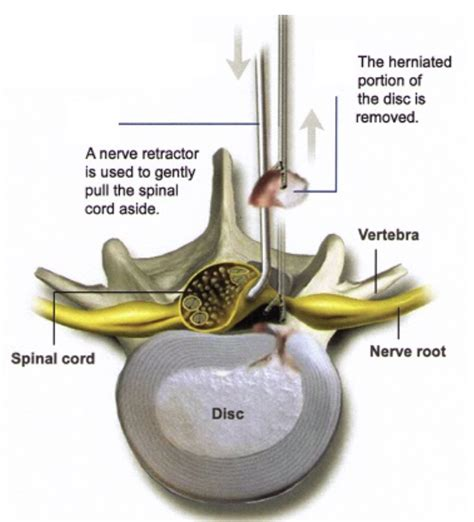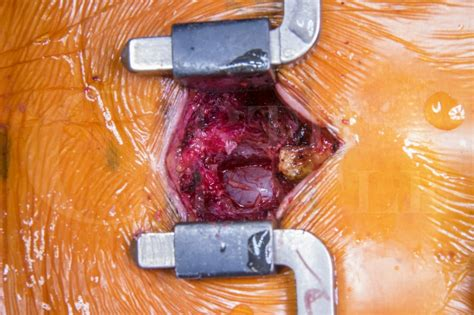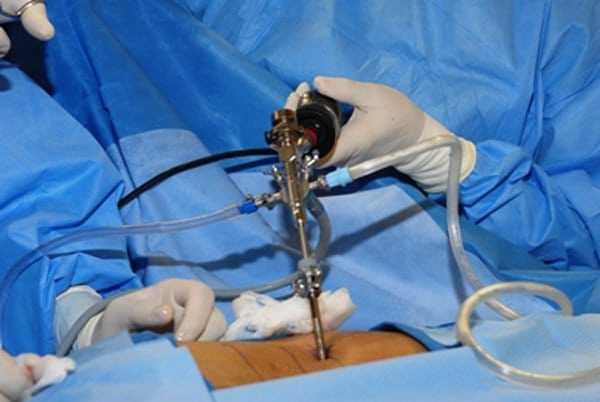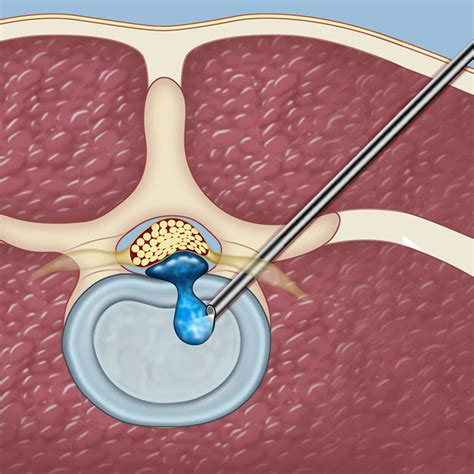Spine Surgery
Keyhole
Discectomy
Keyhole Discectomy
Keyhole Discectomy
What is a discectomy?
- It is a surgical procedure that is used to treat a slipped disc that is causing leg pain, numbness, weakness etc. that has not resolved with non-operative treatment
- The aim of the procedure is to relieve the compression of the pinched nerve
- Only the herniated part of the disc is removed, leaving behind the normal tissue
- It is also used to treat cauda equina syndrome

What are the various techniques that can be used?
- The traditional technique is a microdiscectomy and it is considered the gold standard
- There is also keyhole procedure also called MIS discectomy or tubular discectomy which is currently the most accepted technique
- Endoscopic discectomy is relatively new and is done with specialised instruments


How is keyhole discectomy done?
- The principles are similar to microdiscectomy
- The difference is that dilators are used to separate the muscle and to rec the bone
- The rest of the procedure is then done through a special tubular retractor
- The incision is smaller compared to a microdiscectomy and there is less muscle trauma

What is endoscopic discectomy?
- It is a newer procedure that is done through a small camera that is inserted through the skin under Xray control to the targeted disc area
- The slipped disc is cleared using specialised instruments
- It is the least invasive of the techniques, but requires special instruments and a surgeon trained in the procedure



What is the success rate of the procedure?
- The procedure has a success rate of more than 90% with almost all patients improving
- The pain relief is almost immediate
- Most patients are able to go home the same day or the day after the procedure

Are there any risks associated?
- Like any surgery, there is risk of complication such as anaesthetic reaction, infection, DVT/PE etc
- More specifically, there is risk of incomplete relief and a risk of recurrent slipped disc
- Your surgeon should be able to guide you through the risks specific to you






